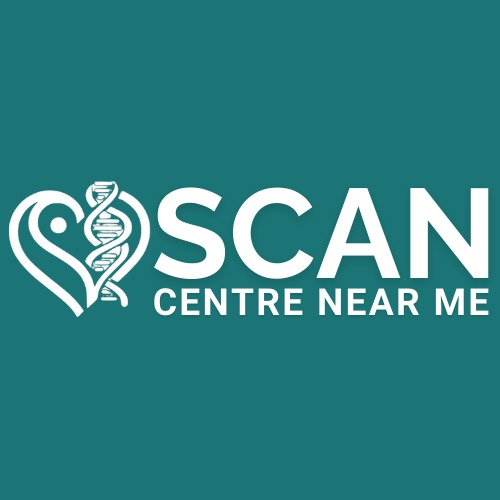Anxiety Disorders and the Brain: What Neuroimaging Reveals About Anxiety’s Physical Basis
- May 10, 2025
- 0 Likes
- 6 Views
- 0 Comments
Do you sometimes wonder if your anxiety is “all in your head”? Science confirms that anxiety disorders have a very real physical basis in the brain—and advanced neuroimaging can now reveal these changes.
In India, anxiety disorders affect between 3.9% and 25% of the population (depending on the specific type), making them the most common mental health conditions in the country. While traditionally diagnosed through clinical interviews and behavioral assessments, modern neuroimaging techniques are revolutionizing our understanding of anxiety’s biological roots.
The Physical Reality of Anxiety in Your Brain
Anxiety isn’t simply excessive worry—it’s a complex neurobiological condition involving specific brain circuits and structures. Advanced brain imaging techniques can now visualize these physical changes, providing objective evidence of what many patients have long understood: anxiety disorders have a biological basis.
Dr. Rajesh Sharma, Chief Radiologist at Scan Centre Near Me, explains: “Many patients find validation when they see their brain scan results showing physical differences associated with their anxiety. This understanding often becomes the first step toward effective treatment.”
How Different Anxiety Disorders Show Distinct Brain Patterns
Neuroimaging studies have revealed that different types of anxiety disorders exhibit unique patterns in the brain:
- Generalized Anxiety Disorder (GAD): Shows heightened activity in the amygdala and prefrontal cortex, areas responsible for threat detection and worry.
- Panic Disorder: Displays abnormal activity in brain regions that control fear responses and interpret bodily sensations.
- Social Anxiety Disorder: Reveals hyperactivity in the amygdala specifically when processing social cues or anticipating social judgment.
- PTSD: Shows distinctive changes in the hippocampus (memory center) and altered connections between emotional and rational brain regions.
“These distinct patterns help specialists differentiate between anxiety disorders that might present with similar symptoms but require different treatment approaches,” notes Dr. Sharma.
When Should Physicians Recommend Brain Imaging for Anxiety?
While not required for all anxiety diagnoses, neuroimaging is increasingly recommended in certain scenarios:
- When symptoms don’t match typical anxiety presentations
- For treatment-resistant anxiety that hasn’t responded to standard approaches
- When there are concurrent neurological symptoms (dizziness, headaches, memory issues)
- To rule out other medical conditions that might mimic anxiety
- As part of comprehensive treatment planning for complex cases
“At Scan Centre Near Me, we see many patients referred for brain imaging after traditional anxiety treatments haven’t achieved the expected results,” explains Dr. Sharma. “The insights gained often lead to more effective, personalized treatment plans.”
The Connection Between Physical Symptoms and Brain Activity
Many anxiety sufferers experience intense physical symptoms—racing heart, shortness of breath, digestive issues—that can be frightening and even mistaken for serious medical conditions.
Advanced functional neuroimaging has revealed the neural basis for these physical manifestations. When anxiety activates the amygdala (the brain’s alarm system), it triggers the hypothalamic-pituitary-adrenal (HPA) axis, releasing stress hormones that produce physical symptoms.
Neuroimaging can demonstrate this brain-body connection, helping patients understand why their physical symptoms occur despite normal cardiac or respiratory exams.
How Neuroimaging Findings Guide Personalized Treatment Approaches
Perhaps most importantly, brain imaging results can guide more effective, personalized treatment for anxiety disorders:
- Medication selection: Patterns of brain activity can predict which anti-anxiety medications might be most effective for a particular patient
- Therapy approach: Neuroimaging findings may suggest whether cognitive-behavioral therapy, exposure therapy, or mindfulness-based approaches would work best
- Neuromodulation candidacy: Brain scans help identify patients who might benefit from advanced treatments like transcranial magnetic stimulation
- Treatment monitoring: Follow-up scans can objectively measure treatment progress and guide adjustments
Rahul M., a patient at Scan Centre Near Me, shares his experience: “After struggling with panic attacks for years, the brain imaging showed unusual activity patterns that my doctor said explained why standard medications weren’t working. With a new treatment plan based on these findings, I’ve seen significant improvement for the first time.”
Advanced Neuroimaging Technologies Available at Scan Centre Near Me
Our state-of-the-art diagnostic center offers several advanced neuroimaging options for anxiety evaluation:
- Functional MRI (fMRI): Measures brain activity by detecting changes in blood flow during specific tasks
- Structural MRI: Provides detailed images of brain anatomy to identify structural differences
- Magnetic Resonance Spectroscopy (MRS): Measures brain chemistry and neurotransmitter levels
- Diffusion Tensor Imaging (DTI): Maps the brain’s white matter connections that may be altered in anxiety disorders
Taking the Next Step: When to Consider Brain Imaging for Anxiety
If you’re struggling with anxiety that hasn’t responded well to standard treatments, or if your symptoms have unusual features, neuroimaging might provide valuable insights for your treatment plan.
The process begins with a referral from your psychiatrist, neurologist, or primary care physician. At Scan Centre Near Me, our compassionate team understands the challenges of anxiety disorders and provides a supportive environment throughout the imaging process.
Ready to gain deeper insights into your anxiety? Contact us to learn more about our neuroimaging services:
- Phone: +91 731 698 1458
- Email: cs@scancentrenearme.com
- Online: Book an Appointment
Scan Centre Near Me is committed to providing cutting-edge diagnostic services that bridge the gap between mental health symptoms and effective, personalized treatment. Our team of specialists combines advanced technology with compassionate care to help you find answers and relief.
Disclaimer: This article is for informational purposes only and does not constitute medical advice. Please consult with qualified healthcare professionals regarding any medical conditions or treatments. Brain imaging should be performed based on clinical recommendations from your healthcare provider.





Leave Your Comment